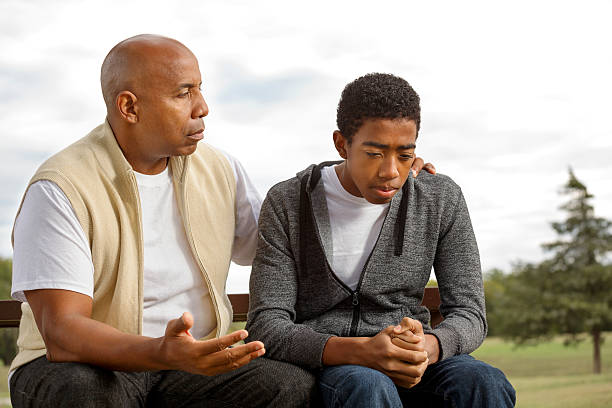
As children grow from adolescents and into adulthood, they will reach a few different stages on their journey there. Supposedly, the best stage of their growth and development is the baby stage because they can’t speak. The toddler stage is when things start to become a little difficult and then there is the stage right before they hit preteens, not bad but still a little difficult. Then, they reach the most infamous stage of all, the one every parent fears, not only for their child but for themselves: the teenager stage.
This stage will bring the most difficulty and confusion for both parent and child. There are so many changes happening during this stage for teenagers. Their body is changing because of puberty, their mindsets change because of the many different influences they are now exposed to, their friends change, etc. When it comes to this stage of life for children, it’s always a long, difficult, and tricky few years to go through, especially since teenagers usually develop such a bad and or nasty attitude, but what if that attitude isn’t because they’re just a hormonal teen? What if that bad attitude is from some type of physical pain? What if it’s from an upset stomach?
Their Attitude Might Be Coming From A Tummy Ache
It’s unfortunate to say, but sometimes some parents forget that their teens are humans and go through pain just as adults do. Whether that be heartache or a broken bone, children and adolescents experience pain and sometimes it’s worse than you can imagine.
Think about everything that you experienced as a teenager, the aches and pains from your growing limbs, the insecurities because of all this new hair growing in places you couldn’t even imagine, the butterflies in your stomach from seeing your crush or even the heartache you experienced from watching that crush walk away.
Regardless of what physical and mental pain happens, teenagers still go through it and this is where their attitudes can come in strong. Sometimes their attitudes might be because they don’t know how to express themselves and their anger or frustrations.
Other times, their attitude can come from dealing with physical pain such as menstrual cramps or growth spurts.
An attitude can also come from them feeling really sick or having a bad stomach ache, but parents, did you ever think that this upset stomach might not be because they overdid it on snacks? Could it be something medically wrong? Possibly and here’s what you need to know.
RELATED: 8 Food Fixes For An Upset Stomach
What This Could Possibly Mean For Your Child
If your child is suffering from constant and mild, moderate, or severe abdominal pain; this could mean that something is medically wrong.
There could be a number of reasons why your child is experiencing this excruciating and or recurring pain. It can be their digestive system that is causing them constant abdominal pain or it could be a type of inflammatory bowel disease such as ulcerative colitis that is usually diagnosed in teens and young adults.
How Ulcerative Colitis Affects Your Teenager
Though this form of IBD (inflammatory bowel disease) can happen at any age, it’s typically diagnosed in teens and young adults.
Ulcerative colitis is a medical condition that causes the lining of the colon to become inflamed or swollen with red sores called ulcers. It can last for a long time or come and go making it a chronic condition.
Though this is a genetic condition, there are cases where children can develop ulcerative colitis even if no one in their family has before.
This disease can stunt your child’s growth, cause them to miss school and events with friends because of chronic pain, be taxing to their mental health and cause them to have challenges doing simple things such as using the bathroom properly.
RELATED: 7 Proven Ways To Soothe An Upset Stomach
What To Look For: The Signs, Symptoms & Struggles
Here are a few signs and symptoms you should look for if you’re concerned about your child:
- Abdominal pain
- Complaining about their vision, having trouble seeing
- Skin rashes
- Pain and swelling of their joints
- Weight loss
- Fatigue
- Bloody diarrhea
- Rectal pain and bleeding
If you notice any of these signs and symptoms, you should reach out to your child's pediatrician as soon as you can.
If you also notice that they struggle to use the bathroom, such as having the extreme urgency to poop or being unable to poop despite having the urgency to on top of any of the other symptoms, then you need to see a doctor right away.
Though teenagers and their hormones can be a lot for everyone, as the parent you have to be willing to dig deeper and figure out the root of the problem because no matter what the case is, you could be saving and or preventing your child from suffering.









